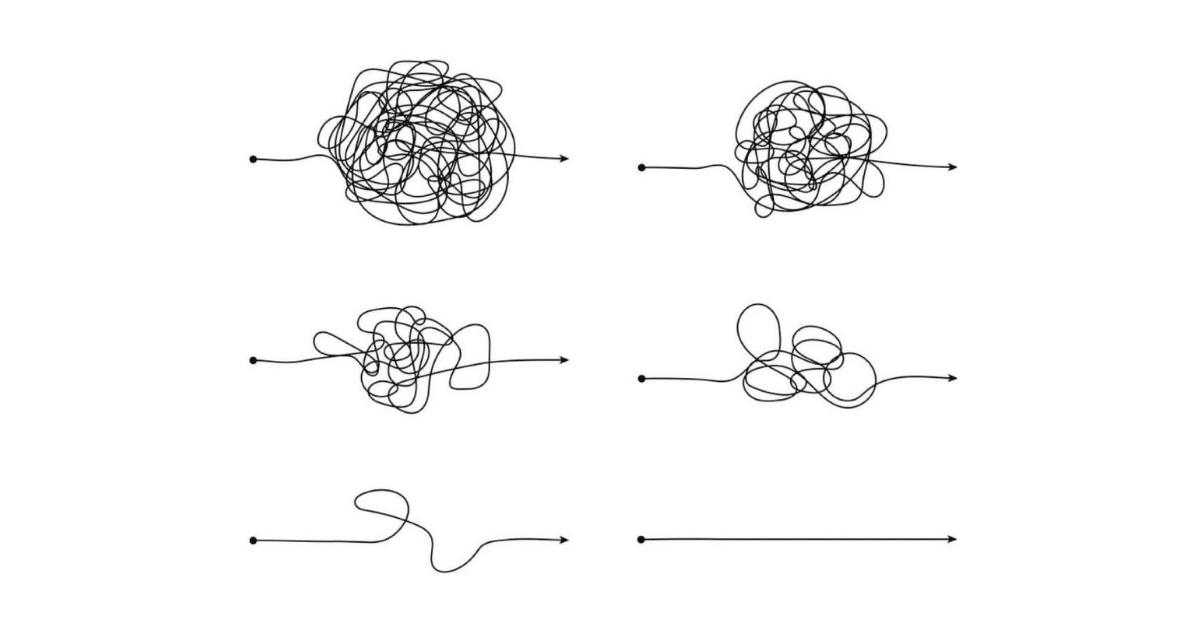I can’t count the number of times a new client has come in saying, “This should be easy. Our situation is not complicated.” Sometimes, it’s followed by a statement like “In fact, my spouse and I have figured almost everything out.” Then, of course, I start asking questions – often about things they haven’t considered.
So, if you’d like to know what makes for an uncomplicated divorce, here’s our 10-point list…
- Both parties want to get divorced. Hands down this makes the process run more smoothly from the start. Husband and wife share the same end goal, which means that the professionals can focus on the “how.”
- Each spouse has stable and predictable income. This sounds like we are defining a perfect world. The truth is, in divorce, stable W-2 incomes make reaching agreements easier. If a spouse owns and operates a business, more documents will need to be produced, and there will often be additional topics to discuss. The same is true if a spouse is a partner in a professional services firm (e.g., law firm or accounting firm).
- Both parties agree that statutory guideline support amounts are appropriate. After payment of and receipt of support, each party has income that is sufficient to cover anticipated expenses. There is nothing to negotiate if guideline support amounts work, and both parties are satisfied.
- The parties agree that the marital house will be sold (or one party will buy the other out). And, there is agreement on both the price and the list of home improvements that need to be made before any money changes hands. Reaching agreement on the list is one thing. Then, there is the conversation about who will do the work, the cost, and how it will be paid for. We’ve seen this slow the process down.
- One party buys out the real estate interest of the other with cash or other non-qualified assets. We realize not all people have this option. When they do, the divorce process is easier.
- The parties hire a coach and utilize them for necessary support. In a divorce, grief and other complex feelings can get in the way of clear thinking. The coach helps each party recognize and process these feelings – and assist the attorneys in understanding the dynamics so that conversations can be productive and respectful.
- Throughout the divorce process, both parties participate in settlement negotiations. It’s about making sure each party is honest with themselves and one another about their needs. Each party expresses themselves in a respectful manner. At the end of the process, each party feels their voice has been heard, and the agreements reached are fair.
- Everyone (clients and professionals) agrees on a realistic pace with an achievable timing goal. Clients do their homework promptly (e.g., turning in statements, reviewing draft documents), and professionals manage the case in light of their overall workload. Professionals’ invoices are paid in a timely manner. If money is tight, timing goals can be re-adjusted to line up with cash flow realities.
- If there are children, both parents focus on what is best for the children and come up with a parenting schedule that works. Then, they follow the agreed upon schedule, including parenting time and transportation, before the divorce is even complete. If they hit a road bump, they talk and work it out. No drama – just keep working to finalize a plan that supports the kids.
- If there is a child with special needs, the divorce will be more complicated. For example, the child may be dependent for the foreseeable future. The parenting plan will be more complicated and will need to consider the relevant time frame. The conversations take longer because they are often more complex, and the variables are greater. If a special needs trust needs to be established, the divorce paperwork needs to align with those documents.
This is what we believe makes for an uncomplicated divorce. In reality, we rarely have a case that checks off all 10 points. That’s okay. What’s most important is that everyone recognizes that the process can proceed at a reasonable pace with the goal of a satisfactory outcome for all.



